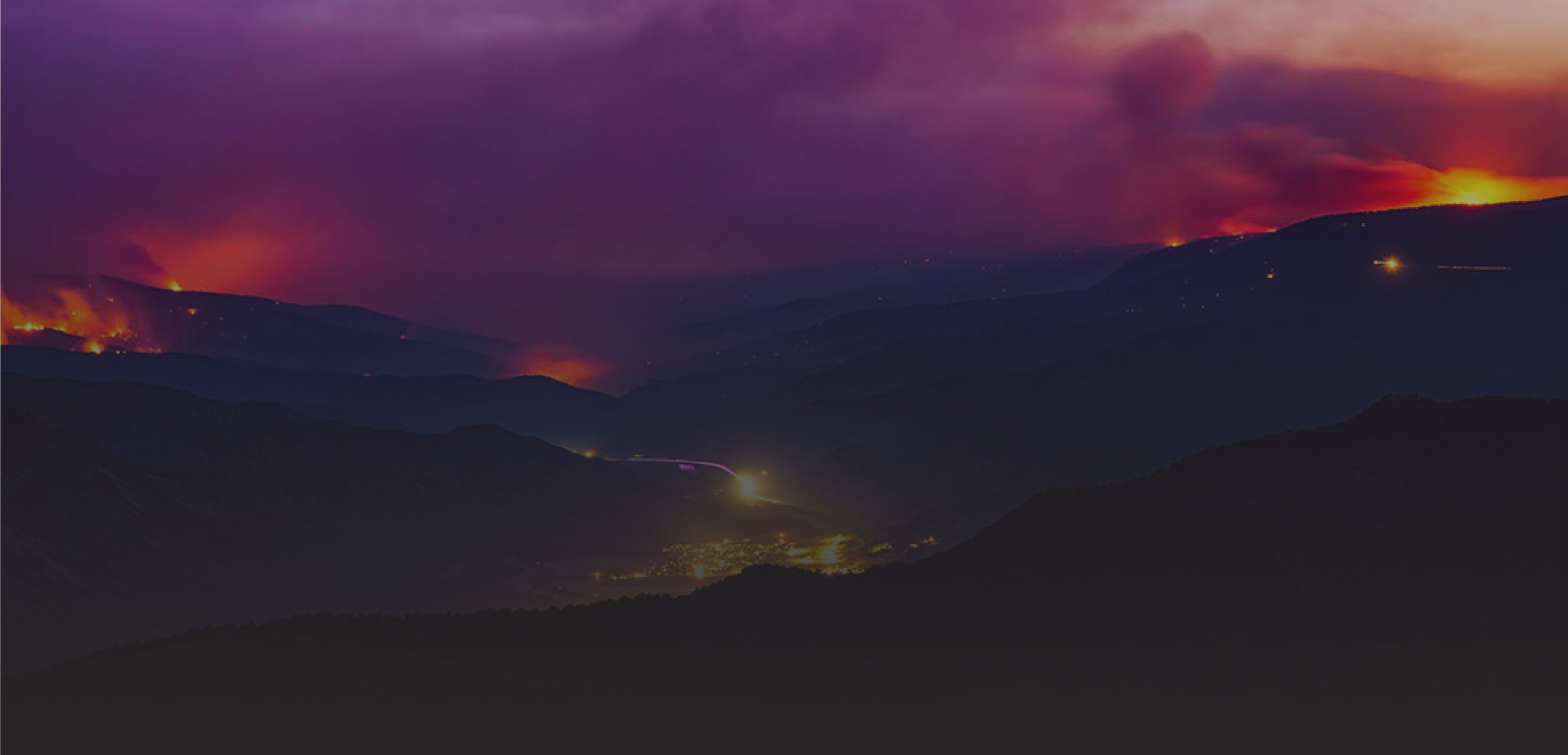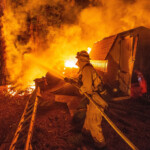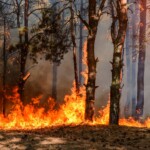
Forest Destruction
Natural wildfire in the West has always played an important role in maintaining healthy forest ecosystems. However, in recent decades, wildfire has increased in frequency and severity, contributing to widespread forest mortality. Since 1970, the annual wildfire season has lengthened by 78 days. Since 1984, the area that burns annually has doubled. Alarmingly, the Forest Service estimates the area may double again by 2050. Forests are critical to improving air quality, as they work to absorb carbon and produce oxygen, acting as the lungs of our ecosystems. Destruction of our forests puts our communities, ecosystem health, and public lands at risk.
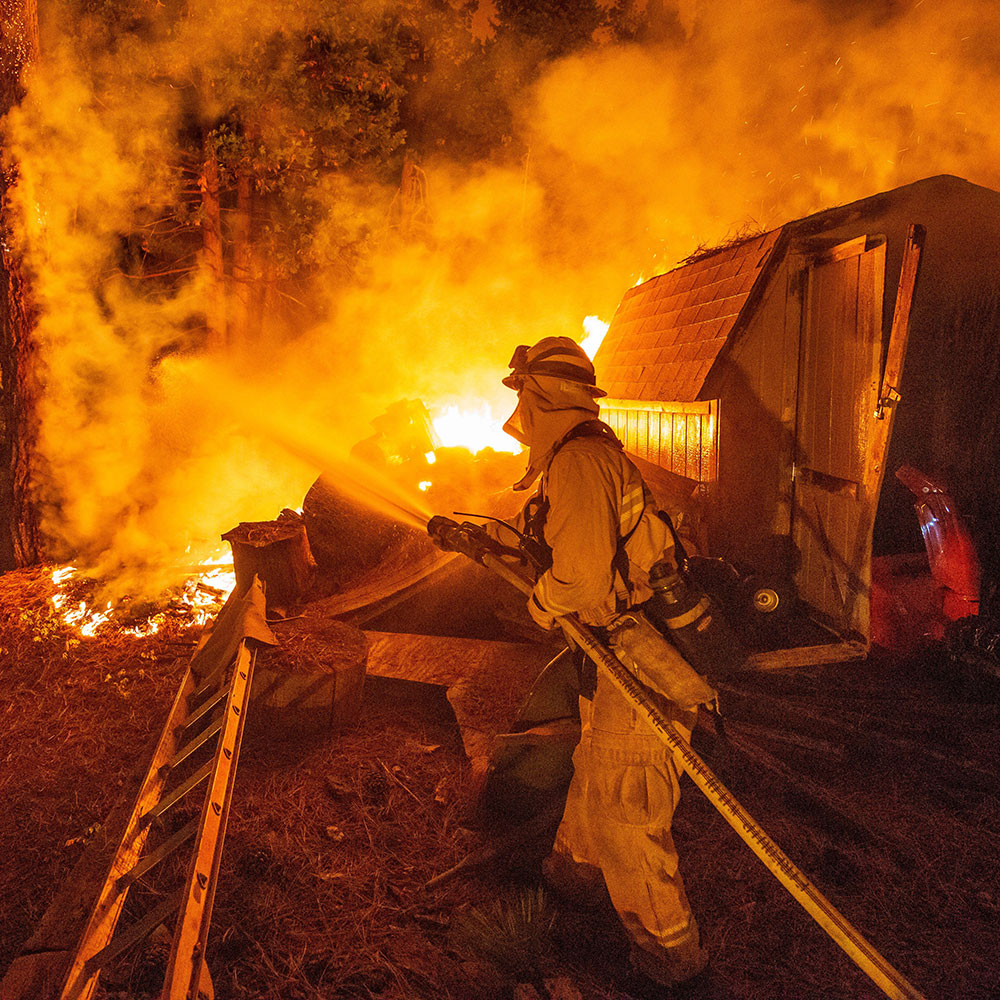
Threats to Western Communities
The continued aridification, or drying out, of the region is escalating fire behavior, and transforming wildfires that have been a natural part of the landscape for millennia into catastrophic megafires that have become a year-round threat for towns and cities across the West. For an increasing number of days each summer, massive amounts of wildfire smoke — and the resulting poor air quality — make it harder for us to live, work, and play in the region we call home. These fires also increase the likelihood of other environmental impacts to our communities, including flooding, erosion, reduced water quality, loss of key wildlife habitat, and other ecological and economic values.
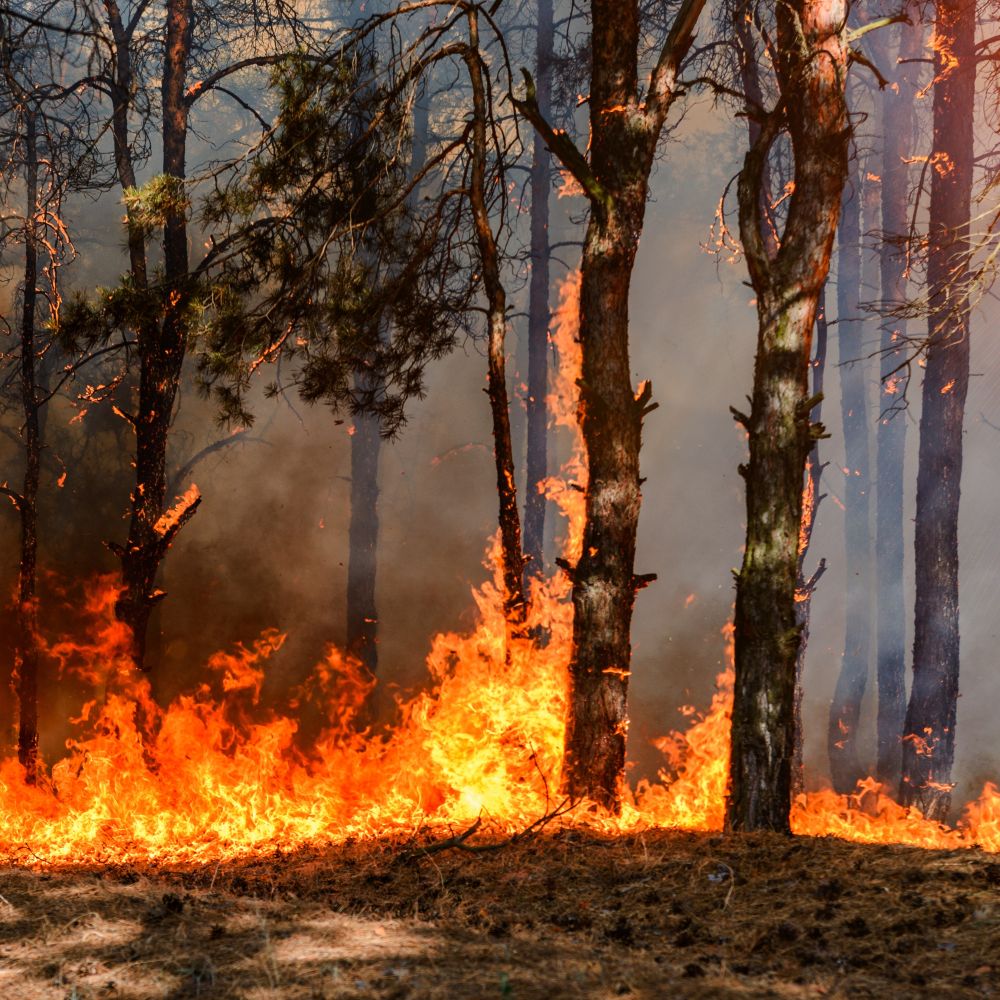
Ecosystem Health
Historically, natural wildfires have refreshed soil nutrients and encouraged healthy, functioning forest ecosystems. But climate change has changed the natural fire regime on Western lands. Rising temperatures due to climate change have helped drive an increase in wildfire activity. And these wildfires now burn hotter, for longer and endanger Western ecosystems, wildlife, homes, and water supplies. While natural wildfire helps rejuvenate forest ecology, the catastrophic fires of today scorch rather than regenerate the earth. Because of this, tree stand diversity, wildlife habitat, and the entire ecosystem suffer.
